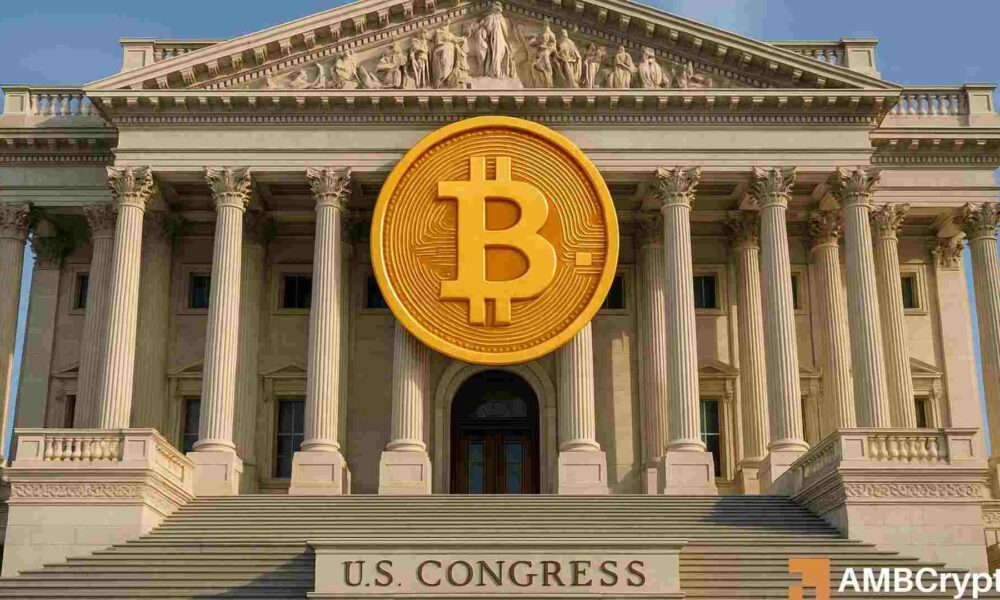The Future of the Crypto Market Structure Bill: Bipartisan Challenges and Opportunities
The path forward for the comprehensive crypto market structure bill in the U.S. Congress is filled with both promise and uncertainty. Senate Democrats, led by Arizona’s Ruben Gallego, have emphasized the importance of a bipartisan approach to effectively regulate the $4 trillion cryptocurrency market. They are advocating for quick progress, but only on the condition of genuine collaboration from their Republican counterparts. The emphasis on true bipartisan efforts signifies that the stakes are high, not just for lawmakers but for the entire crypto industry longing for regulatory clarity.
Bipartisan Support as a Key Requirement
The current dialogue among Senate Democrats highlights their commitment to moving ahead with the crypto market structure bill. Their call for "true" bipartisan collaboration suggests a recognition of the complexity and importance of this legislative effort. As Gallego stated, a comprehensive and considered approach is vital for a market of this size, which has implications that extend far beyond mere financial transactions. The Democratic group has not only indicated support but has also laid out seven essential pillars for the bill, which include measures to combat illicit finance and corruption. This foundational perspective focuses on ensuring that any regulations put forth will uphold the integrity of the financial system while also fostering innovation.
GOP’s Willingness to Collaborate
On the Republican side, there appears to be an opening for bipartisan negotiation. Reports from Politico indicate that the GOP is prepared to wait for input from Democrats by late October to mark up the bill and push it through the Senate Committee. This willingness signals an interest in crafting legislation that reflects a united stance rather than a partisan divide. Katie Warbinton, an aide to Republican Senator Cynthia Lummis, has indicated that they have been seeking Democratic feedback since July, affirming their commitment to collaboration. However, that collaboration has yet to materialize, raising questions about how quickly they can move forward.
Internal Divisions Within the GOP
While the GOP shows signs of openness, internal divisions could complicate matters. Some Republican senators, like John Kennedy, have expressed hesitance about pushing the bill forward, stating they are "not ready" to advance it by the September deadline set by Senate Banking Committee Chair Tim Scott. These internal disagreements may delay not just the bill’s progress, but also any meaningful discourse between parties. The upcoming October deadline looms large, as both sides must reconcile their differences and create a legislative framework that aligns with their collective goals.
The House’s Role and Potential Delays
Adding another layer of complexity, the House has already cleared its version of the crypto market structure bill in July, which puts pressure on the Senate to act promptly. Should the Senate introduce amendments, those changes would require revisiting the House, further extending the timeline for finalizing the legislation. The current target of having the bill on President Trump’s desk by the end of the year may prove difficult to meet. Analysts suggest that the chances of achieving this ambitious goal are below 40%, especially with various factors at play, including potential Senate-House reconciliation processes that are known to be time-consuming.
Implications for the Crypto Industry
The outcomes of these legislative negotiations are particularly significant for the crypto industry. The lack of clarity in the current regulatory environment has left many businesses uncertain about their operating frameworks. As Justin Slaughter, VP of Regulatory Affairs at Paradigm, articulated, achieving lasting clarity will require bipartisan support. The industry’s growth and sustainability hinge on effective legislation that balances the need for oversight with the innovative potential that cryptocurrencies offer. Only through a cooperative approach can lawmakers ensure the foundations for a robust regulatory framework that both protects consumers and nurtures industry growth.
The Road Ahead
As we look ahead, the pressing question remains: Will the GOP effectively address its internal divisions to accommodate Democratic requests by the upcoming deadlines? The urgency with which both parties are compelled to act reflects the high stakes of the crypto market. Lawmakers must navigate a complex landscape filled with competing interests and potential pitfalls. While the calls for bipartisan collaboration are encouraging, the path forward will likely be marked by challenges that could test the commitment of both parties. Ultimately, achieving a well-structured bill could pave the way for a more stable and regulated crypto landscape—an outcome that benefits not just lawmakers, but all participants in the burgeoning cryptocurrency market.


